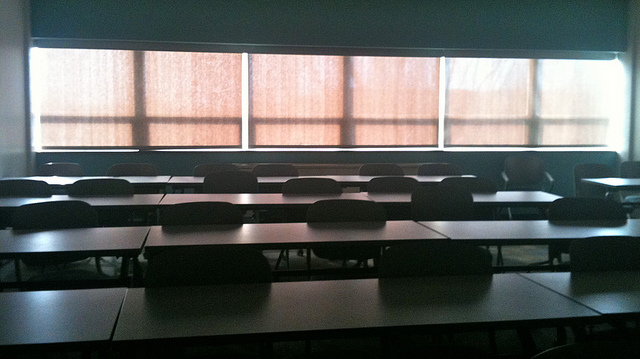For the past few weeks I’ve been a part of a faculty seminar at my institution focused on the “Catholic intellectual tradition.” The seminar has been a welcome respite once a week to take a step back from the daily details of teaching, and instead look at how my work – both in research and in pedagogy – fit into the rich history of this tradition. Getting a sense of the forest, you might say, instead of analyzing trees.
Understandably, much of the discussion this year has circled around the new developments within the ongoing abuse crisis in the Church. Being in Maryland and sandwiched between the PA dioceses examined in the grand jury report, as well as Theodore McCarrick’s stomping grounds in Washington, DC, both of the most recent epicenters of this ongoing crisis weigh heavily on faculty (and I would warrant, students as well). As a small Catholic liberal arts school experiencing the same financial struggles as many peer institutions, our Catholic identity has been viewed as both a boon and a liability. If our Catholic identity is part of what makes the school distinctive, will that be an identity that the next generation wants to embrace, in light of the widespread (and rightful) sense of anger and betrayal among Catholics?
Just a few days ago, Michael McCarthy, SJ wrote an editorial for America Magazine on “The Uncertain Future of Jesuit Education,” which helpfully names a few challenges that this (and the following) generations of students will face (such as fears about automation and job security). But as I was reading the article I was struck by how many of the obstacles identified were external: technology, economic pressures of commodification, etc. There was little consideration of internal failings within the Church, and how that might impact our universities. McCarthy writes:
In recent years I have been surprised by how fearful and suspicious many college undergraduates have become. As smart, generous and hard-working as they are, there is a deep vulnerability and a habitual distrust in the values and authorities that provided previous generations with confidence and direction—a sense of citizenship and of religious commitment, to name only two. As one colleague has pointed out, regarding those growing up in the age of social media, “their nose for bulls–t has become more keen than their expectation of truth.”
While not challenging the cultural shifts that McCarthy names among younger generations, I think those of us within Catholic higher ed need to take a moment and examine how our Church has contributed to precisely this sense of suspicion. That we have lost a sense of moral authority in the eyes of the world, and among our own congregations. This will have a very real impact on our universities: the Catholic identity may not be a identity that the next generation is proud to have. And at the moment, it’s hard to tell them why that should be any different.
McCarthy lays out a proposal for how Jesuit institutions might address this, in light of their own distinctive spirituality and charism. But I think this is a question that all Catholic colleges and universities need to raise. In fact, it would be great to hear this in the comments: what conversations are happening at your institutions about the impact of the abuse crisis on Catholic identity?


